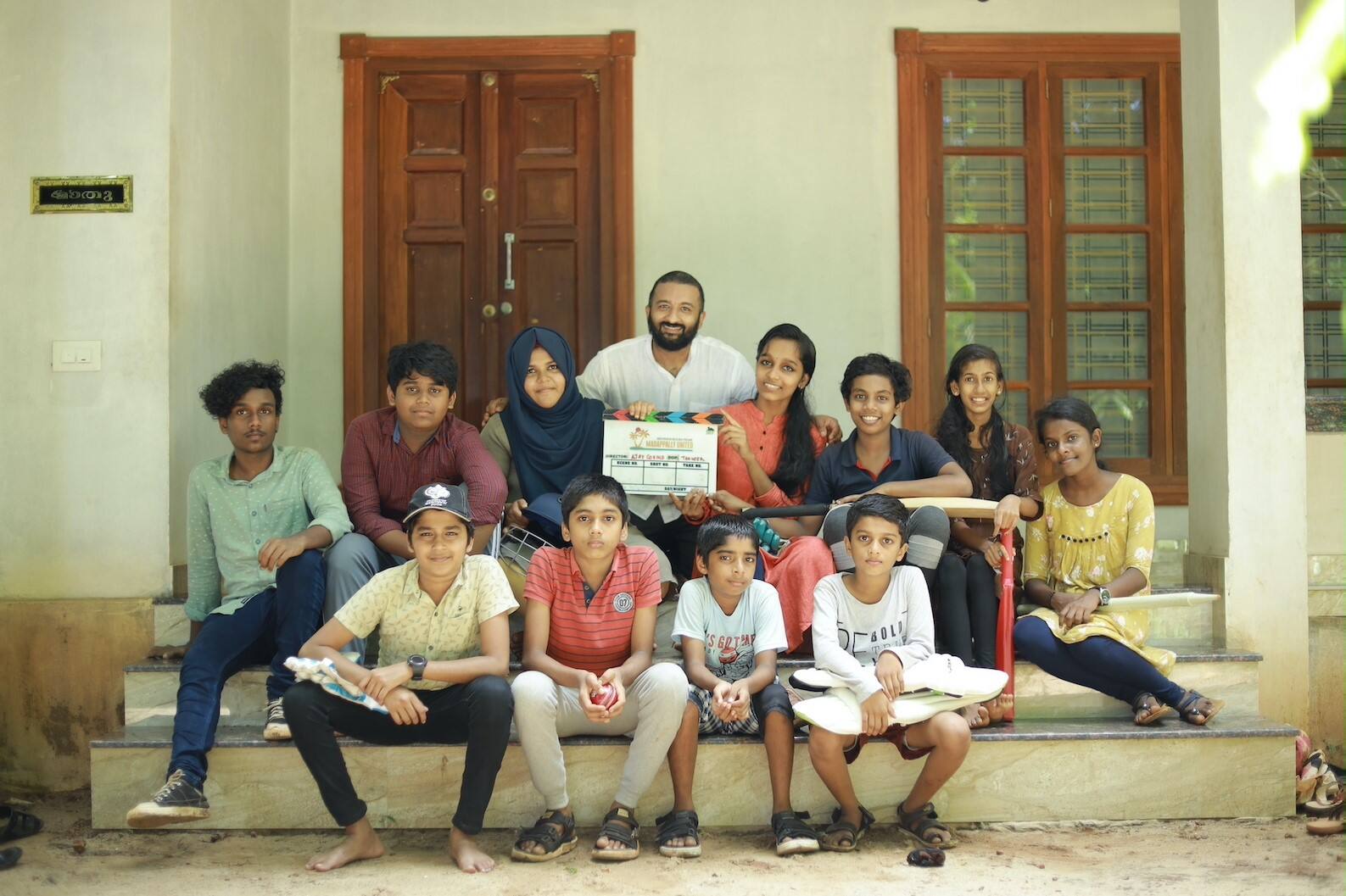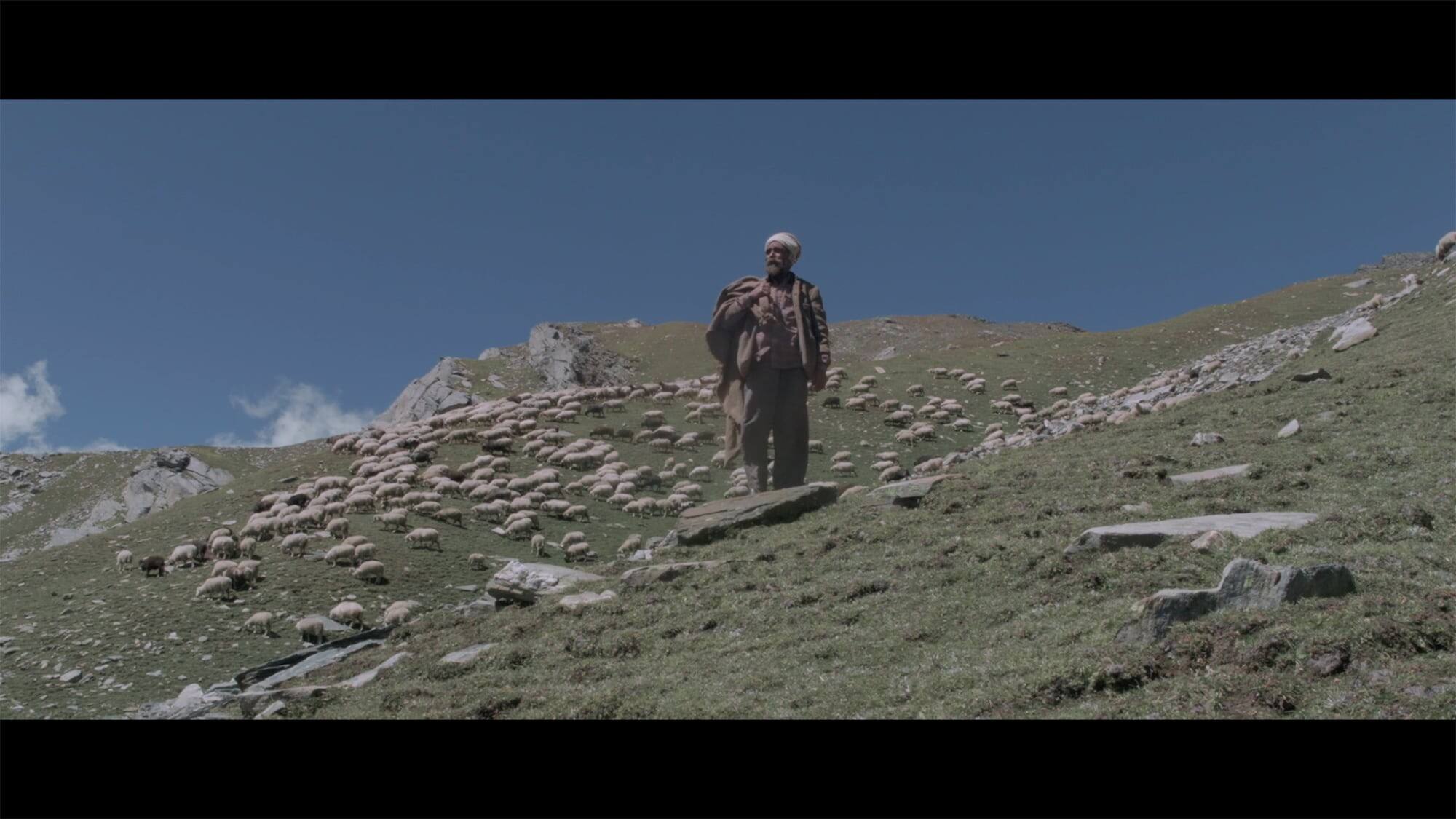



Gaido Debra Sangma is looking forward to working in his first feature film this summer. An electrician in Shillong, Debra Sangma will be the assistant art director in award-winning director Dominic Sangma's second feature film set in the Garo hills of Meghalaya.
"I am excited, it is a dream come true," says Gaido, a member of the Garo tribal community born in Assam's Karbi Anglong. "I have always wanted to work in the movies, but never got an opportunity before," he adds. Rapture, Dominic's sophomore feature after the criticially acclaimed Ma.Ama, will begin production in June.
 Community-based cinema has emerged stronger as a viable filmmaking model during the pandemic.
Community-based cinema has emerged stronger as a viable filmmaking model during the pandemic.Gaido's dramatic entry into movies symbolises a new filmmaking model in Indian cinema paralysed by a global pandemic. Community-based cinema, the new model, is necessitated by a knotty setting in the film industry today. For film professionals, crossing state borders is no longer a breeze. And money for productions is not easy to find.
"You have to adapt to the situation," says Dominic, who studied direction at the Satyajit Ray Film and Television Institute (SRFTI), Kolkata. "You have to evolve and find ways to shoot beyond the limits," he adds. "We can't depend on people from Mumbai or Kolkata, we have to start working with our own people."
Dominic's new film, which revolves around the disappearance of a boy when villagers are busy collecting an insect that appears only once in four years, will have actors -- all non-professionals -- from his Nongthymmai Garo village, the adjacent Umdem, and Selbagre near Tura in Garo hills.
 Madapally United, a new Malayalam movie made in a small town in Kozhikode district of Kerala, has 45 debutants drawn locally.
Madapally United, a new Malayalam movie made in a small town in Kozhikode district of Kerala, has 45 debutants drawn locally."Gaido was a boy who fixed things at homes. He met me in Shillong a few months ago and asked for work. I told him to make a rain machine for a music video I was producing. I was surprised, he made it so well," says Dominic. "If we can't hire technicians from outside, we have to create them in our own place."
If Gaido's remarkable avatar as art director is any indication, filmmaking in India is going to be fundamentally different in the New Year with some directors learning lessons of survival from a frozen industry. With nearly all filmmaking processes from casting to shooting to post-production done in small towns and villages, rural economy is expected to be a major beneficiary in community-based cinema.
In faraway Kerala too, the new model is taking root. Ajay Govind, who has just completed his second feature film, Madapally United, believes filmmakers will benefit if they look for local stories and resources. Shot in Madapally, a small town 50 km from Kozhikode, the film about a children's cricket team discovered several new talents, including a new location manager in a former bus conductor.
"Aneeshan Madapally came to the project as the father of a child actor, but helped us in scouting for locations," says Govind, whose debut feature film, After the Third Bell (2014), was a murder mystery in Hindi and English. "Aneeshan is now working in another project in Kozhikode as location manager," he adds.
Filmmakers leaning towards home for content and location is nothing new. Recent examples of community-based cinema include Village Rockstars (2017), shot entirely in Chhaygaon near Guwahati, Assam, and Sudani From Nigeria (2018), in Malappuram, Kerala. What has changed during the pandemic is directors building capacities locally to make community-based cinema a viable model.
Bhaskar Hazarika, who directed the award-winning Assamese movie Aamis, recruited a group of young women and men to train them in filmmaking. "These young people are full of energy," says the Guwahati-based Hazarika. "The idea is to build capacities locally in the next two years," he adds. Hazarika's training has already led to a new feature film, which is awaiting release. The film is directed by Kulanandini Mahanta, a trained cinematographer who was first assistant for camera in Aamis, and co-written and produced by Hazarika's homegrown studio.
"It is a good way of making films in these uncertain times. It doesn't matter what is happening around you unless the pandemic has also affected the local community," says Ridham Janve, who directed The Gold-Laden Sheep & The Sacred Mountain (2018) in the Gaddi language of the tribal community living in the Dhauladhar range of the Himalayas in Himachal Pradesh. The film cast include the richest shepherd in the Dhauladhar ranges, 400 sheep, 350 goats and three dogs.
The Goa-based Janve fell in love with the shepherd community in the Dhauladhar range during his long visits there to write film scripts. "Every year I would spend time in the village doing some writing and getting acquainted with their culture and stories," says the director who went on to set his debut feature film in Himachal Pradesh. "What drives community-based filmmaking is interest or passion for a particular people or place," he adds.
 Gaddi language film, The Gold-Laden Sheep & The Sacred Mountain (2018), by Ridham Janve is set in the shepherd community of Himachal Pradesh.
Gaddi language film, The Gold-Laden Sheep & The Sacred Mountain (2018), by Ridham Janve is set in the shepherd community of Himachal Pradesh.In Kerala's Kasargod, which borders Karnataka in the Western Ghats, Malayalam filmmaker Vinu Kolichal has drawn from the district's remote locations to make two films, Bilathikuzhal (2018) and Sarcas, completed after the lockdown restrictions were lifted. Both Bilathikuzhal, which won a Special Jury Mention at the International Film Festival of Kerala, and Sarcas employ cast and crew from Kasargod. "In North Kerala, art is closely connected to the community. This is the land of Theyyam -- a ritual dance -- and many amateur theatre groups," says Kolichal.
Community-based filmmaking is not without its challenges. "If some event happens in the village during the shoot, the cast and crew will rush there leaving the set. It is hard to deal with it," says Dominic, who won the Rotterdam film festival's prestigious Hubert Bals Fund for script and project development, worth 9000 euros (about Rs 8 lakh), for his second feature film.
"Local crew do not report on time, which is another worry," adds Dominic, who is currently building a database of technicians and non-actors in Meghalaya. "The local cast and crew get paid minimum money. Sometimes they say we don't need this much money. Once an elderly man acting in one of my short films demanded a huge amount saying filmmakers are very rich."
Discover the latest Business News, Sensex, and Nifty updates. Obtain Personal Finance insights, tax queries, and expert opinions on Moneycontrol or download the Moneycontrol App to stay updated!
Find the best of Al News in one place, specially curated for you every weekend.
Stay on top of the latest tech trends and biggest startup news.